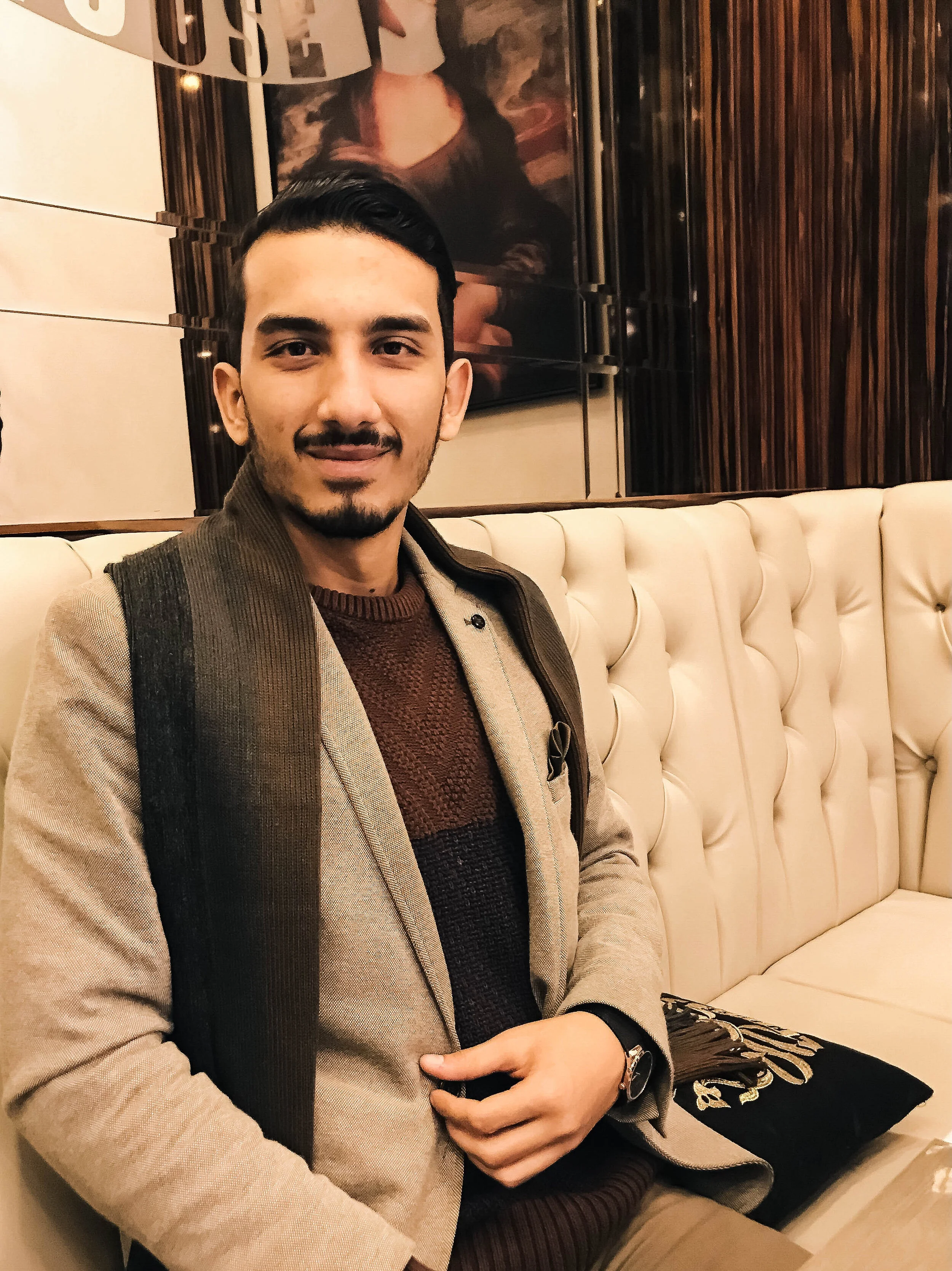Op Ed: How studying Shakespeare expanded my ability to write about Palestine
“What follows are my own reflections on what I find, as a Gaza-based English major, to be Shakespeare's relevance to the Palestinian struggle at this moment in time. What has been viral around the globe by Shakespeare is what inspires and charges my hope, determination to freedom, and amounts my will for vengeance. My professor Refaat Alareer is to whom I express gratitude for the fascinating views-widening ideologies throughout the Shakespeare course.”
Never has Shakespeare, the greatest perplexing Godfather of English literature, been in touch with my identity as a Palestinian student more than how he is in the time being. I did not have the cognitive awareness that a character with whose singular aptitude I have fallen in love, basically a playwright, would resonate powerfully with my definition of the question of my home Palestine, its perception, implementation, and production. Shakespeare’s linguistic masterpieces of art are as old as 1500 years old, yet as novel as the unceasing modern-day struggles for freedom and humanity privileges.
As an English major, my duties to write and give voice to my people’s struggles can be a heavy load to bear. But the Shakespeare course’s books are of great utility to my demands as a Palestinian writer whose pen should be dynamic around the clock. Well-schooled in the exuberant leaks between his social and artistic life, I see Shakespeare's works not just as items in a curriculum, but as confidantes in a time of conspiracy and mis-portrayal of my people’s attempts to unveil the naked truth that what's happening in Palestine is theft of identity, land, culture, and erasure of an entire population in clear daylight that happens through a military approach to ethnically cleanse and replace the Palestinians with a settler population. In return we stand solid and refuse to be silent on funding Israel’s apartheid and persecution and spotlight our cause with a unity that apprehends the universality of our narrative in the strongest terms of all time.
Studying Shakespeare expanded my frame of thought to understand that this painful uprooting process takes a long time and does not happen in moments of violence or escalation. Rather, it is settler colonialism that the Palestinians are being dispossessed so that another gathered population can take over. Israel has created a labyrinthine system that interjects itself into our daily lives. By controlling our water resources, we dismiss the big deals and think of just washing our faces and taking showers or having access to clean drinking water to the point that we start to consider leaving. We tangle our daily routines to correspond with the Israeli military rule and timing — the abuse and humiliation we go through on the checkpoints are enough to make us leave.
Shakespeare’s wit and brevity inspire my writing and activism since I began studying his work. His characters’ richness of thought and philosophies of hope and life can help to fine-tune our legitimate narrative of resistance under the vulgarity of the oppressor that we have been subjected to since the ‘Nakba’. The Palestinian voices have been subjected to habitual, Shakespearean deeds by kings of power, like killing, arrest without charge, and race discrimination. All are part of the daily reality that equips Palestinians with more persistence and rootedness to stand against the aggressions dropping on them from all sides. And these mechanisms of creating bold characters’ positions should not be relegated to the margins of our nation’s anti-colonialism history and to planting solid Palestinianism. Othello, Hamlet, King Lear, and Macbeth are born of Shakespeare’s wickedness. They stand with the Palestinians on multi-shared grounds: their hunt for self-declaration, their wars against racism and supremacy, and their challenges to the decay of their realms, their fights for independence, vengeance, and freedom from slavery.
The Palestinians have been the protagonists of struggle since the 73-year tragic play started. Our scenes have stressed how the need is dire to rebel against our domestic corrupt, obsolete ‘representative’ leadership that is off stage in moral, armed resistance with thorough rejection before we drive our path onto the way of liberating Jerusalem. The Palestinian Authority’s vile deeds and shameless collusion are guarded by the Israeli regime that suppresses our human nature by all the means vulgar and accessible at an international level with political and military aid. As I write, protestors are fighting the PA’s regime down the streets of Ramallah. On the other side of the compass, more are up against the settlement project in Beita, while in Silwan and Sheikh Jarrah, people are being colonized and having their homes bulldozed, and Gaza is bombarded. And we who always get killed in front of the culpable world, still we proceed, strive, and thrive, and maintain a daring population charged with legitimacy and rightness amid the ‘quintessence of dust around’.
Shakespeare’s literary thesaurus contained but not praised or beautified people’s rights violations. Killing, for example, means to ascend people to heaven, without regard to if they're decent or evil. In contemporary reality, no fair aid or help but this conception of killing is what we get from the Arab world’s ideology when the context relates to Palestine. Perhaps, it doesn’t necessarily mean to be killing us with live bullets or dropping bombs over our heads, but it extends to besieging all the way-ins to Gaza and restricting the humanitarian aid needed so that the people are left to wrestle with ‘turtle death’ — (a Shakespearean sign that refers to death after continuous deprivation of life necessities.)
Over history, foreigners and occupiers were unwelcome, merely at Shakespeare's time, as they were perceived as a threat to the cultural and civil homogeneity of free societies. Othello, for example, deliberately appropriates his cultural characteristics liked by white European people and distances himself from cultural or religious issues disliked by them. By melting into European culture, Othello isolated himself from his origins. So did, is, and will continue to do the occupation state in Palestine. Oppositely, Hamlet is a person of the time being, of modern life - urged me to realize the nearness of our freedom and redemption, stemming from the necessity of critical thinking about the causers of our rights disruption. He is a society drama — he sets in motion between a text and ever-renewing calls for freedom and breaking the chains of modern-day slavery. Today’s reality in Palestine is no different. Our reactionary nature stands against the rule of corrupt law of both Israel and the PA’s silencing methods against ‘its own people’ whom they should defend and protect, and whose voices they should amplify.
In sum, the Shakespeare course made me produce no acceptance for this hardship and rooted in me the belief that seventy-three years of colonialism will only lead to the prefix ‘de’ to the word. However, how can we talk about 'de-colonialism' or 'de-coloniality' when the Israeli colonial surges on? While Palestinians remain under blockade, bombardment, facing ongoing apartheid and ethnic cleansing and continue to be denied their right to return to the homes from which they have been — and continue to be — forcibly expelled? Not being too opinionated, the poisonous literacy will come to be clean; there will happen a time where people will distinguish what it means to be on the wrong side of genocide, and the next generations will be well-informed that a culture, land, and identity theft was never acceptable, and they will scrap the bitterness of life to lack justice no evermore.




